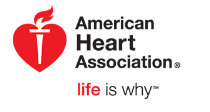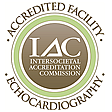Mitral Valve Regurgitation
Valves are doorways that let blood flow one direction in, through, and out of the heart. The mitral valve, on the left side of the heart, allows blood flow from the upper to the lower chambers. When damaged, valves do not close tightly and blood leaks. Mitral valve regurgitation is when blood leaks backward into the upper chamber of the heart, forcing the heart to work harder to pump the excess blood. Over time, the heart weakens and fails.
Chronic
Chronic mitral valve regurgitation is most common. It develops slowly. The valve weakens due to wear and tear and closes less tightly. Chronic symptoms may range from mild or grow over the years. These include extreme tiredness or weakness, and buildup of fluid in the legs and feet. Shortness of breath begins during activity then progresses during rest or at night.
Acute
Acute mitral valve regurgitation is rapid and can be life-threatening. The valve or nearby tissue ruptures and the heart is not able to adjust to the sudden onslaught of blood. Symptoms include severe shortness of breath, a rapid heart rate, lightheadedness, weakness, confusion, and chest pain.
Diagnosis and Treatment
A heart murmur is often the first sign of mitral valve regurgitation. It is vital to see the doctors at the Carolina Heart and Leg Center, PA for a proper diagnosis. Chronic mitral valve regurgitation is best monitored by regular exams at the Carolina Heart and Leg Center, PA where doctors may prescribe lifestyle changes, medications, or surgery.
At Carolina Heart And Leg Center, P.A., we are known for our dedication to providing the highest quality cardiovascular care. We’re also committed to helping you take better care of yourself through preventive care and education about healthy lifestyle choices. Contact us today at (910) 491-1760 to schedule a consultation with one of the most trusted healthcare teams in the area.

*Stock photographs and artwork are for illustrative purposes only. **This blog/post contains general information about medical conditions and treatments. The information is not advice, and should not be treated as such. You must not rely on this blog/post as an alternative to medical advice from your doctor or other healthcare provider. Please see our full disclaimer at www.CarolinaHeartAndLeg.com





